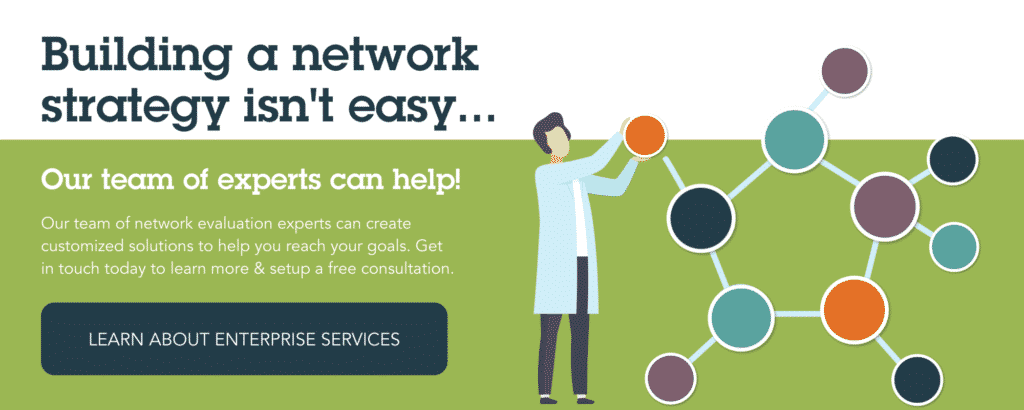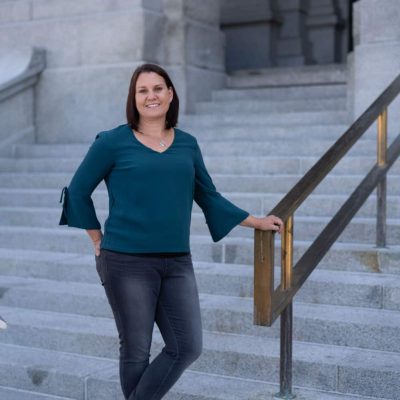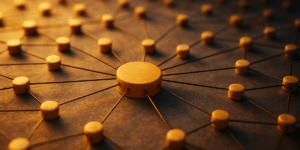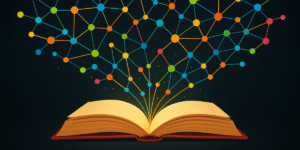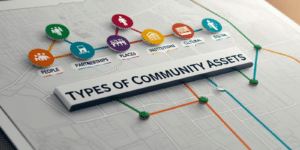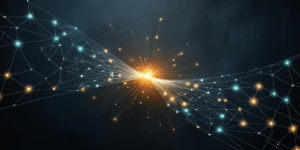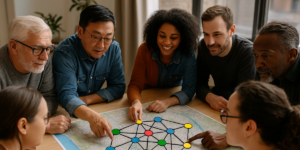Community Connections, River People, and Roots Rodeo – the Ultimate Community Engagement Strategy
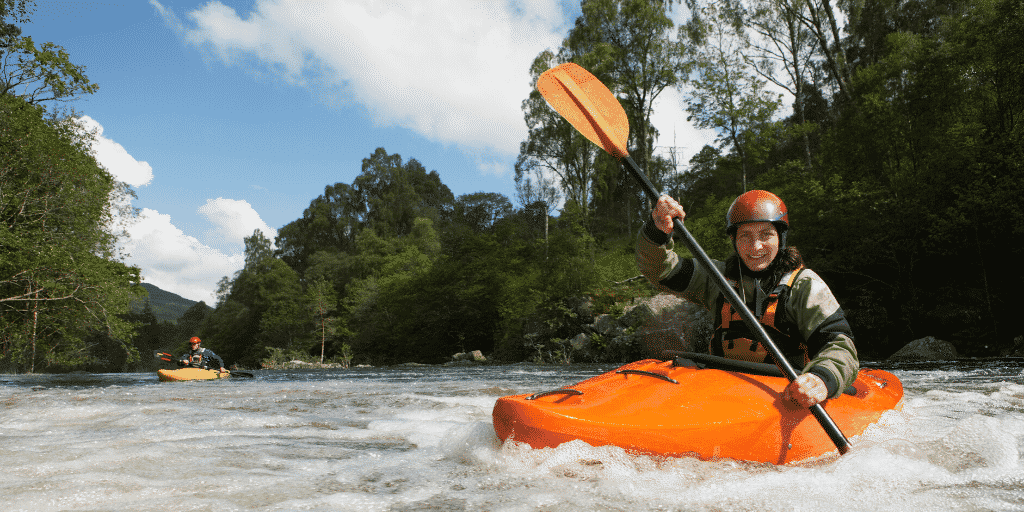
When I started Visible Network Labs, I knew it would be really hard to launch something new, but I also knew I had a huge community of people ready to take the leap with me. If I have learned anything in life, it is that no amount of drive, discipline, or luck will turn an idea into reality, without the love, support, and trust of a whole community of people. My intuition has been to put ideas out there, ask people to test them out, and help to build them. That is how PARTNER was born, and there is not a day that the community that helps to build it is actively engaging with us. But it’s not just about saying you value community, it’s about building trust so that the community can thrive without you – because it is those relationships and the strength of many that makes the impossible, possible. I learned that from my river community…
In a world so big, it is hard to find ways to connect to one another. I am a researcher who studies social networks and for everything I have learned and discovered about connections, I still am not sure that there is any one right way to be connected to our surroundings, to the people we encounter, to the needs of everyday people that if met, might change their lives. Creating a community engagement strategy depends entirely on the context of each community – And it often surprises me that one of the most authentic places that I have really experienced the power of community synergy, in its purist form, is on the river. Yes, I brag about it, because I am so proud of the community I am a member of. I am a kayaker and river rafter and part of a very strong community of people who, regardless of what we do when we’re wearing dry clothes, we are all kayakers when we don our sparkly helmets, lifejackets, and drytops. I felt this way when the first time I hung out with other kayakers in Colorado, in the middle of Southern California, and even now as a mom of 3 kids who has traded in her sparkly helmet for a pair of big rafting oars.
There is nothing surprising when I say I love to kayak, I love to be on the river, to feel the earth around me, to see the little bubbles that rest on the water as your paddle cuts through them, to wake up in the middle of nowhere because I paddled there, or to be upside down in a hole and hear the sounds of a thunder that no one but you are hearing at that moment. Who doesn’t love a good adrenaline rush? But for me, there is something deeper about it all. The river community is an open community and one that functions by relying on others. We all know who that person was that gathered up all your gear floating down the river when you first swam, the person who threw you a rope after you got worked to near exhaustion in the killer hole, and the stranger who picked you up that day you were hitching a ride back up the Poudre Canyon. I am certain that if I drove into the middle of Chicago with my kayak on my car, to a place where eye contact with a stranger might be a waste of time, that the first kayaker who saw me would look me straight in the eyes, and smile.
Discovering community where you least expect it.
I did not become completely convinced of this phenomena until the summer of 2003, when my friend Gary Mullins asked for a ride to the rodeo in Green River, WY. I was happy to have company on the ride, so we took off on Thursday to spend the weekend in a very flat section of Wyoming. During the course of the weekend, Gary and I had a transformative experience. We showed up to what we thought was going to be a typical rodeo – big names, a few prizes, and lots of big moves. We were wrong. Instead, we were in the midst of a rural community full of connectivity. In the next few days, we met city council members of Green River, WY, a couple firemen, the guy who pushed for the creation of a “play park”, and the incredible people who believed him when he proclaimed “build it and they will come.” We did come and we pushed the limits of that little whitewater feature. We cheered each other on, we celebrated in the evenings, and we all attended the closing ceremonies complete with medals, dinner, and maybe even an appearance from the head of the chamber of commerce. The event in Green River sparked contagion and on our way home, Gary and I knew we could do nothing but bring this energy, this connectedness back to our own community.
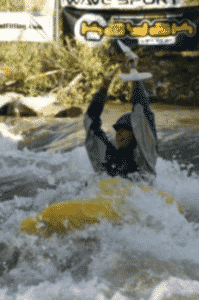
We decided to do our own rodeo – and from that day forward, the Golden Community Rodeo Series was born. We cannot tell this story without mentioning Green River. When we think of “roots rodeos”, we credit Green River for bringing it back – making it cool and getting the most novel of boater excited to be there. In the spirit of Green River, we started our planning. We went about this daunting task with one goal in mind – let’s bring our community together around the thing we all love, the river.
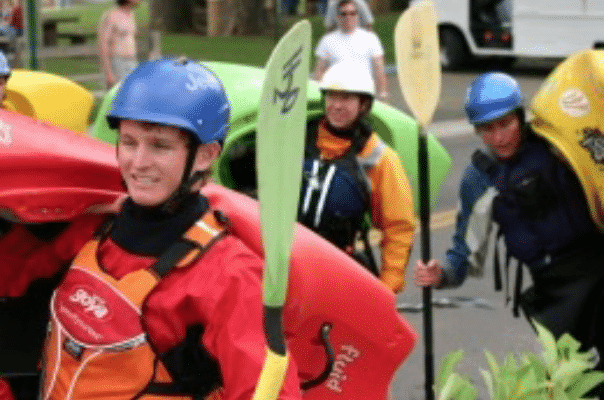
We started out with a vision – to create an atmosphere that defined “roots rodeo”. We were certain that everyone wanted to be a rodeo star and not everyone wanted to do the “circuit”. Rodeo is not just about sponsorships, the latest trick, and the biggest air. It is also about learning new tricks, getting the nerve to go into a big hole, and rolling up when you flip. We can all relate to this, and we believed that rodeo is for everyone. The rules of the event were easy: include everyone, provide a safe environment, and reward even the smallest accomplishments. We created categories for every skill level and craft we could think of, and we gave the best prizes to the newbies – the ones that did not already have a nice drytop, a brand new skirt, or even a hat with a logo on it. Sure, we had big names show up, and we honored them by asking them to be our main judge. We wanted to make sure that the competitors knew that that the pro rodeo boaters wanted to see what they could do too. They are just as proud to be part of this community as we all are. The result: an event where first-timers routinely showed up and just about everyone went home with a prize.
A community engagement strategy
Maybe it was the socialist in me, believing that people will work hard and act when they believed in something, or maybe it was the trust in goodness that defines Gary, but one way or the other – we were the perfect pair to get this thing going. So we set a date. We talked to everyone we could. We went door to door in our home turf, Golden, CO – asking business owners to help us recognize the efforts of everyday kayakers by giving them a free haircut, a couple of free beers, and even a facial or two. They said YES! We had our first rodeo. We plastered the town with announcements, we called everyone we knew, we bragged about the great prizes. And we didn’t disappoint. Most importantly, we told people – this is your event. Tell us what you want, help us define the rules, helps us dole out the prizes. So that year, we gave away a prize for the various expert, intermediate, and sport divisions and additionally, gave out prizes for best smile, best swim, and the token fashionista.
Over 100 people came to watch, a local church pre-school made our sponsorship sign, and over 35 competitors showed up. We didn’t charge for this event. Instead we gave the boaters things, as much as we had mustered up. We told them, these are gifts from your community – go back to your community and tell them you thank them and then come back next year, and bring your ideas and energy. Then we sent thank you notes to all the sponsors – so that next year, they would remember us.
The next year, Gary and I decided to step it up – we put on three rodeos. We worked our butts off. Gary’s wife Christy became the unofficial do-everything gal. She cheered us on, she called people, she helped the judges, she spent hours organizing prizes, and most importantly, she reminded us constantly how much we were doing for the greater good. And she wasn’t the only one who thought so. As the planning went on, people started asking what they could do, how they could help. Soon, we had someone bringing the tent, someone else bringing an amplifier, and other people suggesting categories for “fun prizes.” This event was leaving our hands – it was falling in the hands of the greater community. And we couldn’t have been more thrilled.
We loved this event, we owned this event, but we wanted nothing more than to see it become the community’s event. This is what we believe is the essence of “roots rodeos”. We believed in what we knew – that kayakers have a special bond. They need each other, no one can be a kayaker without others, no one can be in this community alone. And we believed that rodeo was an expression. It is a way for people of all abilities to show off, to go big, and to push themselves to the brink of what they thought they were remotely possible of doing. For some that was throwing a helix, for others it was just hitting the roll. We wanted to find a way to make rodeo about everyday people – and we believe we did it.
The ultimate reward however, was not the most expensive prize, but the connection that we all felt to each other. We believe that in this world of fast-pace, fragmented events – there is simplicity in the way a rodeo can bring out the best in people and can encourage people to be active in their communities – to interweave our social fabric and if nothing else, show the world that the kayaking community is made of people who trust each other, believe in each other, and want nothing more than to get to the take-out in one piece with the experience of just having done something that few before you have ever experienced.
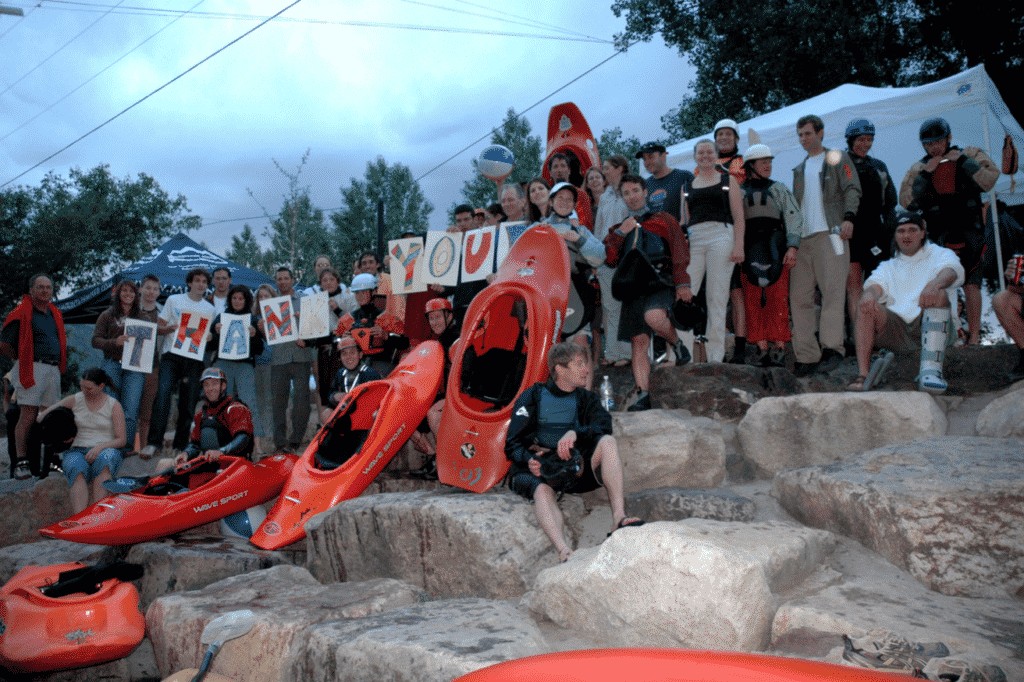
If you love it, let it go
My last year, the fourth year, I moved to Southern California for a job. The Golden Community Rodeo Series happened, and from what I hear, was better than ever. I had no part in it, my job kept me preoccupied. Some might feel sorry for themselves that an event they once considered their “baby” happened without a notice that you weren’t even there. But the truth is, I’m so proud of this. I’m so proud of the fact that I left and the event survived – that was the whole point. I am so proud to be a member of the kayaking community. The essence of what this is all about transcends geography, and if you are also a transported kayaker like myself, you probably know what I mean, because you most likely have met another group of quality people – who sincerely care if you are alive today and who connect to you as a friend, just because you boat. This is the beauty of “roots rodeo”, this is the beauty of our community.
As I look back, 15 years after that first summer, I find myself thinking about this experience all the time – of the lessons I learned that have shaped me both professionally and personally. I cannot stop thinking about how this story, about how community is created, even on the river has persisted in my thinking for so long. I can honestly say I see community connection possibly everywhere, and it’s been a great ride getting to be involved in so many different ways! Today I am the Co-Director of the Center on Network Science at the University of CO Denver and the CEO of Visible Network Labs. You heard right – I took my rodeo day lessons and turned them into a bonified research and business venture. When people tell me I’m working too hard, I smile, and just know that I’m living the dream. And I’m not the only one who has figured out how to make a living from lessons I learned as a dirty, always cold and wet, yet very happy river kayaker.
About the Author: Dr. Danielle Varda
CEO, Founder, Professor, & Mother of Three Spirited Girls
Danielle is a scientist turned start-up founder, leading Visible Network Labs as CEO. Her combination of 20 years as a network scientist studying social connectedness and health, published author, 12 years as a tenured professor at the University of CO Denver, and her successful launch and scaling of the Center on Network Science came together in one big idea to start VNL. She is an entrepreneur, technologist, network scientist, fundraiser, and mother to three spirited girls. Her calling came when she realized her unique ability to develop technology solutions bridge complex systems science with everyday applications in communities, organizations, and business. She is a nationally known expert and keynote speaker on applied network science, with specific expertise in health system, public health system, entrepreneurial ecosystems, and educational system approaches. Danielle has published over 30 peer-reviewed articles on networks and their impact on health, well-being, and economic outcomes. Danielle leads VNL’s strategic partnership approach, is the company’s lead fundraiser, and has a vision for how to utilize network science to solve our most pressing and intractable problems.
In addition to her leading VNL, she is also an Associate Professor at the School of Public Affairs, University of Colorado Denver where she is Co-Director of the Center on Network Science, Director of the Nonprofit Concentration in the MPA program, and Advisor to the Dual MPA-MPH Degree. Additionally, she holds a secondary appointment in the Colorado School of Public Health, Department of Health Systems, Management, and Policy. She also has a courtesy Associate Professor appointment in the School of Information Sciences at the University of CO Boulder.
